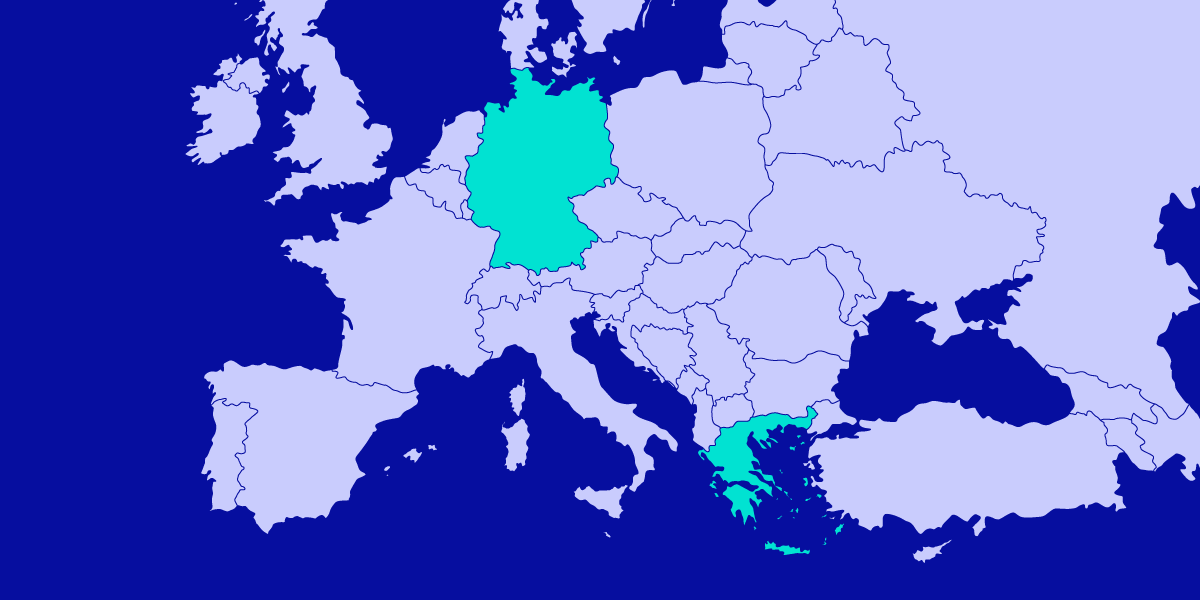*Last update: 09/14/2023
European countries are making progress in implementing electronic invoicing in all areas. Italy is a great example of the benefits entailed by digitalizing this process in the corporate sector. For some years now, the European Union itself has incentivized the use of the e-invoice for transactions with the public administration.
In today’s blog, we analyze the direction taken by Germany and Greece.
Germany proposes implementing a mandatory e-invoice for B2B transaction
This past month of April, the German Ministry of the Treasury published a consultation on the mandatory electronic invoice for transactions between companies (B2B). Once this consultation period has elapsed, the German government’s proposal is to implement an electronic invoicing system where data is sent to the government and the recipient simultaneously, in other words, authorization from the public administration will not be required prior to issuing an invoice. Companies will be able to use the public electronic invoice platform or any private platform that meets the established requirements.
Meanwhile, Germany wants to modify other laws like the tax and commercial law, so that electronic invoices will be legally valid and for paper documents to no longer be legal. The German government also wants to regulate the authenticity, origin, legibility and integrity of invoices.
The Ministry of Finance recommended to Parliament that the mandatory e-invoicing system should come into force on 1 January 2025. However, the recent draft of the Opportunities for Growth Act delays the start date to January 2026.
 Greece published a schedule for implementing a B2G mandatory electronic invoice
Greece published a schedule for implementing a B2G mandatory electronic invoice
The mandatory electronic invoice for transactions between companies and public administrations (B2G) will be a reality in Greece. It is established this way by Law 4412 of the Hellenic republic on Public Works, Public Contracting and Services.
Public administrations are already required to receive and process structured documents. The new requirements is that from now on, public suppliers must issue electronic invoices in accordance with the European regulation.
This mandatory requirement will begin soon and will be implemented gradually.
These are the public agencies that are required to use the e-invoice beginning on September 12, 2023:
- Ministry of Infrastructures and Transport, Ministry of Digital Governance and the Ministry of Immigration and Asylum
- City of Athens
- National Central Authority on Health Contracts and National Central Authority on Public Contracting of the Ministry of Development and Investments
- Sociedad de la Información S.A.
- Athens University of Economics
- Attiko Metro S.A.
- EYDAP S.A.
- Egnatia Odos SA
The agencies of the rest of the Central Administration must use the electronic invoice beginning on January 1, 2024. Beginning on June 1, 2024 it will be mandatory for other contracting authorities. Finally, on January 1, 2025 other agencies of the State’s General Administration will be added to the electronic invoicing regime.
These are the news in Germany and Greece. But if you want to stay abreast of changes in the regulations of each European country, please consult our legislative map “The panorama of the Electronic Invoice in Europe”.











